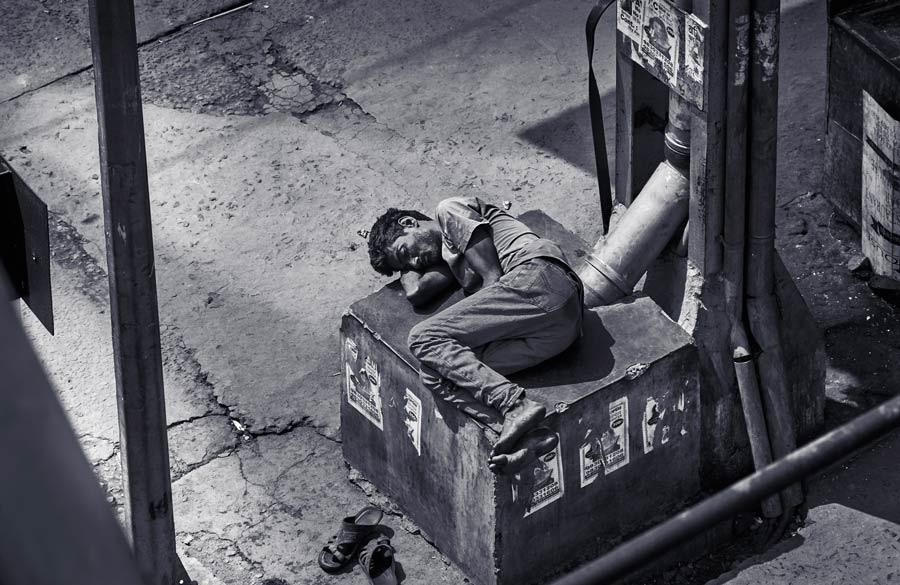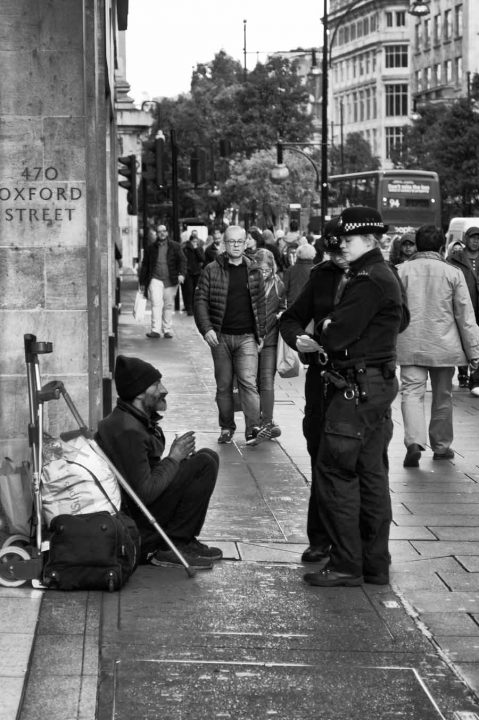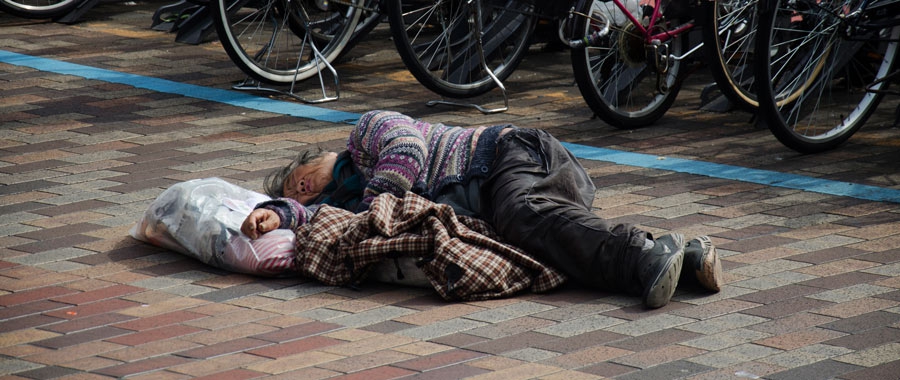The views expressed in our content reflect individual perspectives and do not represent the authoritative views of the Baha'i Faith.
Millions of the world’s people, from children to the elderly, have no home – yet international law sees housing as a basic human right. What do you think – do we each have a right to a roof over our heads?
Polls indicate that most Americans – about 75% of all respondents to multiple surveys – see housing as a basic human right. In European countries, that figure is even higher. Many religious communities agree, including the Baha’i community. The Baha’i teachings definitively state that every human being, regardless of their income, has a right to housing:
… Baha’u’llah set forth principles of guidance and teaching for economic readjustment. Regulations were revealed by Him which ensure the welfare of the commonwealth. As the rich man enjoys his life surrounded by ease and luxuries, so the poor man must, likewise, have a home and be provided with sustenance and comforts commensurate with his needs. This readjustment of the social economy is of the greatest importance inasmuch as it ensures the stability of the world of humanity; and until it is effected, happiness and prosperity are impossible. – Abdu’l-Baha, The Promulgation of Universal Peace
One of the most important principles of the Teaching of Baha’u’llah is: The right of every human being to the daily bread whereby they exist, or the equalization of the means of livelihood.
The arrangements of the circumstances of the people must be such that poverty shall disappear, that everyone, as far as possible, according to his rank and position, shall share in comfort and well-being. – Abdu’l-Baha, Paris Talks
“… the poor man must, likewise, have a home …” Abdu’l-Baha clearly said in 1912. In the United States, that question has a history you may not be aware of, so let’s briefly examine the issue. In his 1944 State of the Union address, President Franklin Delano Roosevelt declared a “Second Bill of Rights,” which included the right to a decent home.

Then, in 1948, the United States signed the U.N.’s Universal Declaration of Human Rights (UDHR), which recognizes housing as a vital component of the human right to an adequate standard of living:
Everyone has the right to a standard of living adequate for the health and well-being of himself and of his family, including food, clothing, housing and medical care and necessary social services, and the right to security in the event of unemployment, sickness, disability, widowhood, old age or other lack of livelihood in circumstances beyond his control. – UDHR, Article 25, section 1.
Almost two decades later, the member nations of the U.N. codified this essential human right to adequate housing into a binding treaty called the International Covenant on Economic, Social and Cultural Rights (ICESCR) in 1966. The United States signed the ICESCR, and therefore must legally uphold the “object and purpose” of that treaty. Then, in March of 2011, the United States made commitments to the U.N. Human Rights Council to “reduce homelessness,” “reinforce safeguards to protect the rights” of homeless people, and continue efforts to ensure access to affordable housing for all.
Of course, the U.S. still has a rapidly-expanding homelessness problem, with approximately half a million Americans on the streets. So despite those legally-binding laws and treaties, the U.S. continually ignores and violates them every day by failing to address its severe homelessness epidemic.
So what’s the solution? Should the United States government build a house for every homeless person and give it to them for free?
That’s not what the laws and treaties require. Instead, they ask each national government to progressively realize the right to adequate housing through enlightened policies and budgets. The U.S. has not sufficiently done that, as everyone can see in just about any American urban area where homelessness has become widespread.

Part of the reason for this inaction comes from the fact that the current American policy toward housing views each dwelling as a commodity whose value is determined primarily by the market, rather than as a necessary resource for human beings. In other countries – Finland, France, Scotland, and South Africa, to name just a few – they see the issue differently, and have adopted a basic right to housing in their constitutions or their laws.
In Scotland, for example, their Homeless Act of 2003 mandates the right for all homeless persons to be immediately housed, and gives them the right to long-term, supportive housing for as long as needed. As a result, in Scotland homelessness rarely occurs, and when it does, it only lasts for a brief time before the person gets housed. In Scottish cities, seeing a homeless person on the streets has become unusual rather than common.
That sort of enlightened governmental policy comes closer to the Baha’i standard of spiritual engagement and consideration for those without homes. Abdu’l-Baha expressed that Baha’i vision of a future state of human society:
The world shall at last find peace, and the equalities and rights of men shall be established. The capacity of humankind will be tested, and a degree shall be attained where equality is a reality.
All the peoples of the world will enjoy like interests, and the poor shall possess a portion of the comforts of life. Just as the rich are surrounded by their luxuries in palaces, the poor will have at least their comfortable and pleasant places of abode; and just as the wealthy enjoy a variety of food, the needy shall have their necessities and no longer live in poverty. In short, a readjustment of the economic order will come about … – The Promulgation of Universal Peace
This “readjustment of the economic order” will only take place, the Baha’i teachings assure us, when we consider all people as one family, and consequently adopt personal, philanthropic and governmental policies that limit the extremes of wealth and poverty:
The greatest means for prevention is that whereby the laws of the community will be so framed and enacted that it will not be possible for a few to be millionaires and many destitute. One of Baha’u’llah’s teachings is the adjustment of means of livelihood in human society. Under this adjustment there can be no extremes in human conditions as regards wealth and sustenance. – Ibid.
















Comments
Sign in or create an account
Continue with Googleor